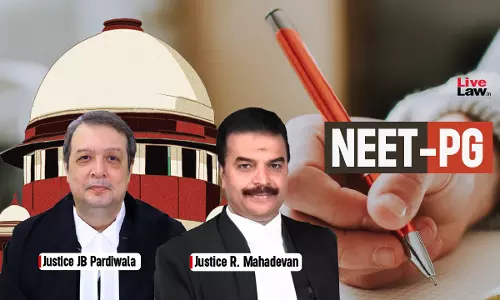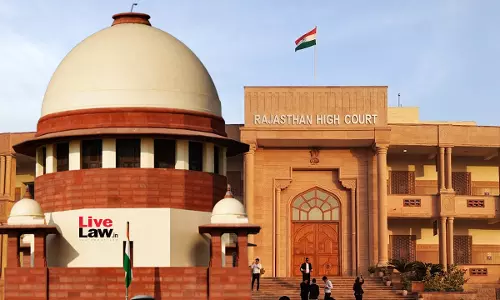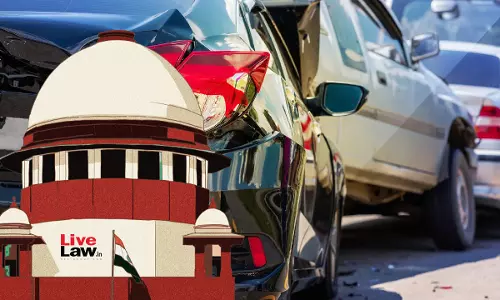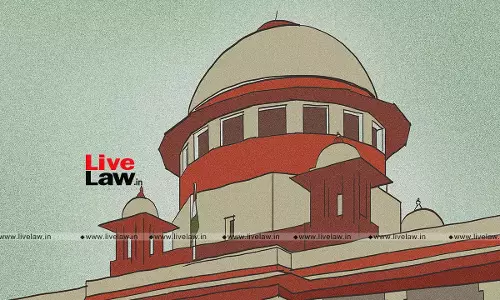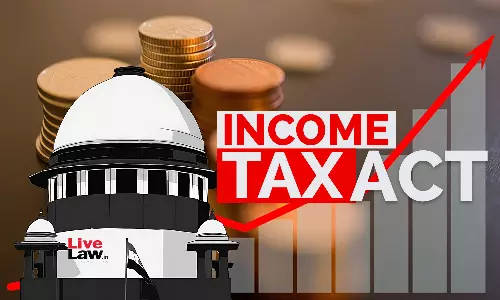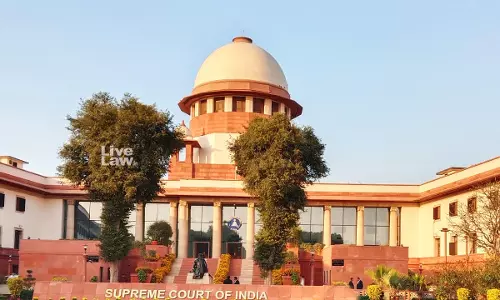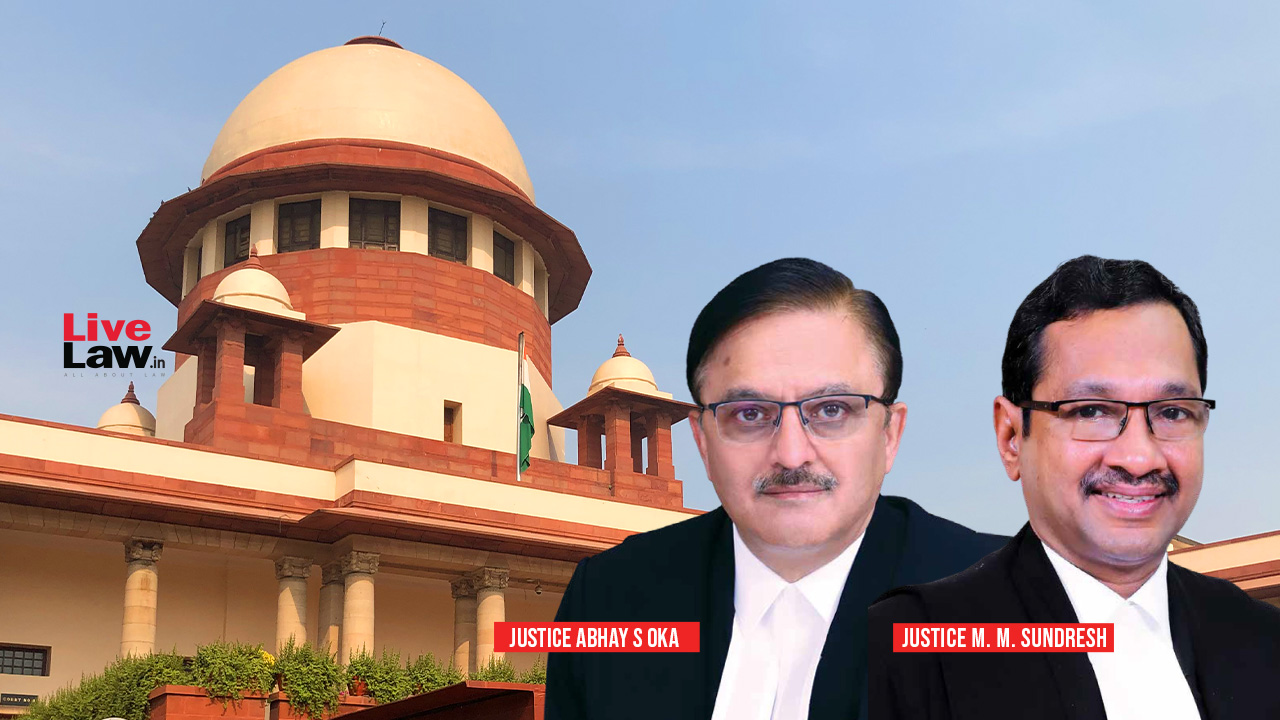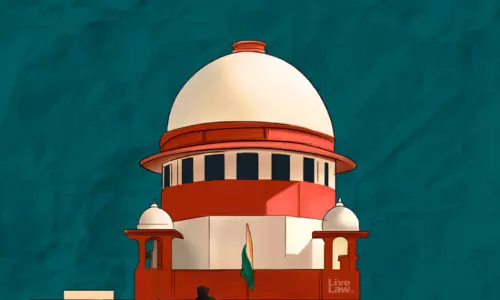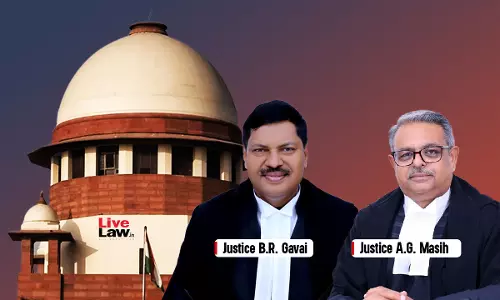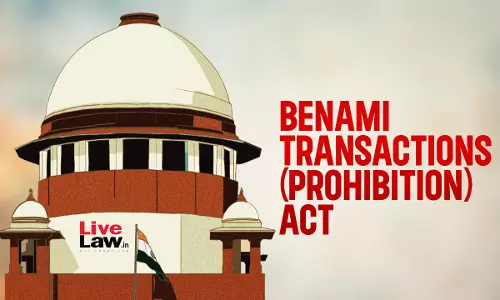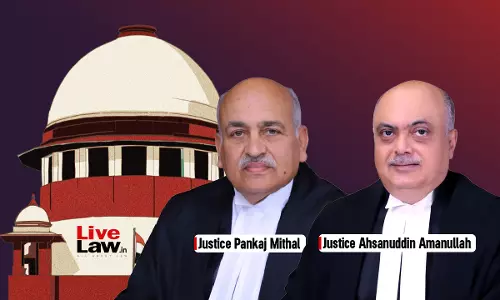Supreme court
NEET-PG : Supreme Court Issues Directions To Prevent Seat-Blocking; Mandates Pre-Counselling Fee Disclosure By Colleges
The Supreme Court issued a slew of directions regarding the conduct of counselling for NEET-PG (National Eligibility-cum-Entrance Test- Post Graduate) to tackle the malpractices of seat-blocking for admissions to post-graduate medical courses.The bench of Justice JB Pardiwala and Justice R Mahadevan was considering the issue of large-scale blocking of seats during the Medical...
Supreme Court Reinstates Rajasthan Judicial Officer Dismissed Over Alleged Concealment Of Govt Job
In a significant ruling today, the Supreme Court of India allowed the appeal filed by a former judicial magistrate from Rajasthan, who was dismissed from service over allegations of concealment of employment and academic impropriety. The bench comprising Justices BV Nagarathna and SC Sharma set aside the High Court's Full Court decision to terminate the Appellant from the judicial service...
Implement Cashless Treatment Scheme For Accident Victims in True Spirit: Supreme Court To Centre
The Supreme Court recently directed the Central Government to ensure that the Cashless Treatment Scheme for Road Accident Victims Scheme, 2025, which was notified on May 5, 2025, is implemented in its true letter and spirit.The scheme has been framed under Section 162 of the Motor Vehicles Act, 1988, which mandates the government to provide cashless treatment to road accident victims during...
Income Tax Act | Supreme Court Clarifies Restriction Under S.80-IA(9) On Claiming Cumulative Deductions Under S.80IA & 80-HHC
Answering a reference, the Supreme Court held that deductions under Sections 80-IA/80-IB of the Income Tax Act need not reduce the gross total income before computing deductions under other provisions like Section 80-HH for export profits.The bench comprising Justices Abhay S Oka, Ahsanuddin Amanullah and AG Masih delivered the verdict while answering a reference after a matter was referred...
2025 LiveLaw (SC) 603 | Ganeshkumar Rajeshwarrao Selukar & Others vs. Mahendra Bhaskar Limaye
Consider Permanent Forum For Consumer Disputes With Sitting Judges; Frame New Rules On Appointments : Supreme Court To Union'No Test For President Of Commissions, Ensure 5 Yr Tenure' : Supreme Court Directs Centre To Make New Rules On Consumer Forum...
Order VII Rule 11 CPC | Partition Suit Can't Be Dismissed At Preliminary Stage If Benami Exception Is Pleaded : Supreme Court
The Supreme Court held that a suit filed seeking partition of joint family property cannot be dismissed at the preliminary stage under Order VII Rule 11 of the CPC when a plea was taken that such property is saved by the exception to the benami transaction. The Court reaffirmed the principle that a plaint can only be rejected under Order VII Rule 11(d) if it is "ex facie barred by law"...



